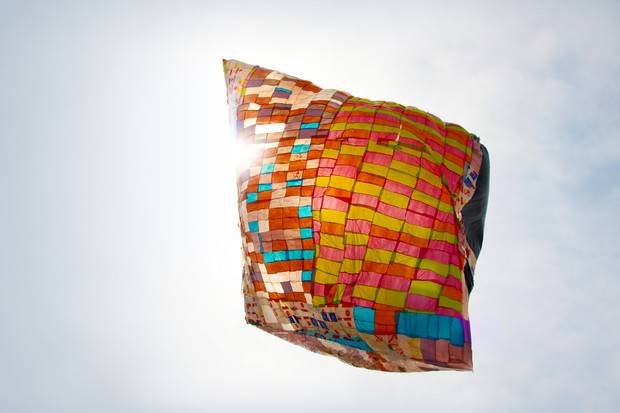A Collection Of World War I Soldiers' Lucky Charms
A fascinating collection of magical objects carried by Irish soldiers around their necks during the war.
In that brief instance in which we stroke a lucky charm between our hands we think that nothing will happen. It’s a brief solace between men. Michel de Montaigne described it better than anybody: It seems that the soul… loses itself in itself when shaken and disturbed unless given something to grasp on to and so we must always provide it with an object to butt up against and to act upon. (Michel de Montaigne, ‘Essais’)
Talismans or amulets are part of all cultures. They form part of the curtain between the tangible (the object) and the invisible (the superstition). And although not everybody allows themselves to have that kind of “superstitious luxury,” the world of objects maintains a special place for things ready to be charged with solace, either for defense in adversity or to invoke good fortune. As a matter of fact, any object can work. It’s simply a question of ‘infusing’ it with superstition, or perhaps with faith, and holding it tight against the chest.
Nobody has spent so much time studying and collecting this fascinating array of magical objects as Edward Lovett, a British collector from the late 19th century who took tremendous pleasure in treasuring what historians would always dismiss. Among his many collections we found one especially captivating: the amulets carried by Irish soldiers in the First World War, included in a new book entitled The First World War Galleries by Paul Cornish.
Many of the soldiers’ talismans that Lovett collected are improvised and made of diverse materials such as a piece of coal, Connemara marble or Pin oak ––All of them typical of Ireland and a sort of memento from home. The collection is beautiful and it somehow humanizes – or even softens – those young Irishmen who drew part of their valor from that little object they could grab hold of, as Montaigne observed; an object that provided them with the necessary comfort of knowing they were taking a piece of home with them to war – and perhaps for that reason they would return there one day.
* Images courtesy of Wellcome Collection
Related Articles
When ancient rituals became religion
The emergence of religions irreversibly changed the history of humanity. It’s therefore essential to ask when and how did ancient peoples’ rituals become organized systems of thought, each with their
Seven ancient maps of the Americas
A map is not the territory. —Alfred Korzybski Maps are never merely maps. They’re human projections, metaphors in which we find both the geographical and the imaginary. The cases of ghost islands
An artist crochets a perfect skeleton and internal organs
Shanell Papp is a skilled textile and crochet artist. She spent four long months crocheting a life-size skeleton in wool. She then filled it in with the organs of the human body in an act as patient
A musical tribute to maps
A sequence of sounds, rhythms, melodies and silences: music is a most primitive art, the most essential, and the most powerful of all languages. Its capacity is not limited to the (hardly trivial)
The enchantment of 17th-century optics
The sense of sight is perhaps one the imagination’s most prolific masters. That is why humankind has been fascinated and bewitched by optics and their possibilities for centuries. Like the heart, the
Would you found your own micro-nation? These eccentric examples show how easy it can be
Founding a country is, in some ways, a simple task. It is enough to manifest its existence and the motives for creating a new political entity. At least that is what has been demonstrated by the
Wondrous crossings: the galaxy caves of New Zealand
Often, the most extraordinary phenomena are “jealous of themselves” ––and they happen where the human eye cannot enjoy them. However, they can be discovered, and when we do find them we experience a
Think you have strange reading habits? Wait until you've seen how Mcluhan reads
We often forget or neglect to think about the infinite circumstances that are condensed in the acts that we consider habitual. Using a fork to eat, for example, or walking down the street and being
The sky is calling us, a love letter to the cosmos (video)
We once dreamt of open sails and Open seas We once dreamt of new frontiers and New lands Are we still a brave people? We must not forget that the very stars we see nowadays are the same stars and
The sister you always wanted (but made into a crystal chandelier)
Lucas Maassen always wanted to have a sister. And after 36 years he finally procured one, except, as strange as it may sound, in the shape of a chandelier. Maassen, a Dutch designer, asked the










